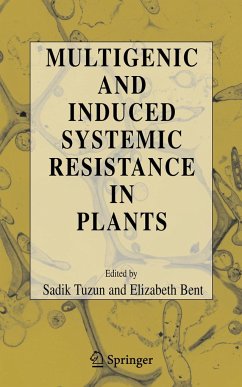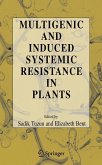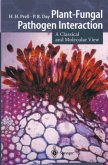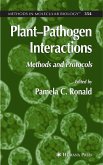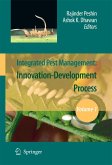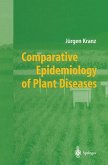Understanding the mechanisms by which plants tolerate attack by pathogens, herbivores, or endure abiotic stress is a crucial part of learning how to enhance plant productivity and crop yields in the face of dwindling global agricultural resources. This book deals with the ability of plants to tolerate such attacks and stresses, and examines in detail various aspects of resistance responses and mechanisms of resistance. The content of this book is designed to be useful to those already knowledgable in the fields of plant resistance mechanisms, and those interested in learning more about these phenomena. This book is suitable for upper-level undergraduate and graduate students, researchers, and those teaching upper-level undergraduate or graduate-level courses in plant physiology or plant pathology.
Plants have developed very sophisticated mechanisms to combat pathogens and pestsusingtheleastamountofreservedorgeneratedenergypossible. Theydothis by activating major defense mechanisms after recognition of the organisms that are considered to be detrimental to their survival; therefore they have been able to exist on Earth longer than any other higher organisms. It has been known for the past century that plants carry genetic information for inherited resistance against many pathogenic organisms including fungi, bacteria, and viruses, and that the relationship between pathogenic organisms and hosts plants are rather complex and in some cases time dependent. This genetic information has been the basis for breeding for resistance that has been employed by plant breeders to develop better-yielding disease resistant varieties, some of which are still being cultivated. Single gene resistance is one type of resistance which has been extensively studied by many research groups all around the world using biotechnological methodologies that have been the subject of many books and journal articles; therefore, it is beyond the scope of this book. This type of resistance is very effective, although it can be overcome by the pressure of pathogenic organisms since it depends on interaction of a single elicitor molecule from the pathogen with a single receptor site in the host.
Hinweis: Dieser Artikel kann nur an eine deutsche Lieferadresse ausgeliefert werden.
Plants have developed very sophisticated mechanisms to combat pathogens and pestsusingtheleastamountofreservedorgeneratedenergypossible. Theydothis by activating major defense mechanisms after recognition of the organisms that are considered to be detrimental to their survival; therefore they have been able to exist on Earth longer than any other higher organisms. It has been known for the past century that plants carry genetic information for inherited resistance against many pathogenic organisms including fungi, bacteria, and viruses, and that the relationship between pathogenic organisms and hosts plants are rather complex and in some cases time dependent. This genetic information has been the basis for breeding for resistance that has been employed by plant breeders to develop better-yielding disease resistant varieties, some of which are still being cultivated. Single gene resistance is one type of resistance which has been extensively studied by many research groups all around the world using biotechnological methodologies that have been the subject of many books and journal articles; therefore, it is beyond the scope of this book. This type of resistance is very effective, although it can be overcome by the pressure of pathogenic organisms since it depends on interaction of a single elicitor molecule from the pathogen with a single receptor site in the host.
Hinweis: Dieser Artikel kann nur an eine deutsche Lieferadresse ausgeliefert werden.
From the reviews:
"The fascinating phenomenon that susceptible plants can become resistant to pathogenic organisms by means of complex induced mechanisms has attracted numerous scientists worldwide. It is therefore appreciated that the state of knowledge of this important subject is summarized and discussed in this book ... . All chapters are supplemented with extended, mostly up-to-date references ... . A detailed subject index is added. ... the book can be highly recommended to every plant pathologist active in research on host-parasite interactions." (R. Heitefuss, Journal of Phytopathology, Vol. 154 (11-12), 2006)
"The fascinating phenomenon that susceptible plants can become resistant to pathogenic organisms by means of complex induced mechanisms has attracted numerous scientists worldwide. It is therefore appreciated that the state of knowledge of this important subject is summarized and discussed in this book ... . All chapters are supplemented with extended, mostly up-to-date references ... . A detailed subject index is added. ... the book can be highly recommended to every plant pathologist active in research on host-parasite interactions." (R. Heitefuss, Journal of Phytopathology, Vol. 154 (11-12), 2006)

